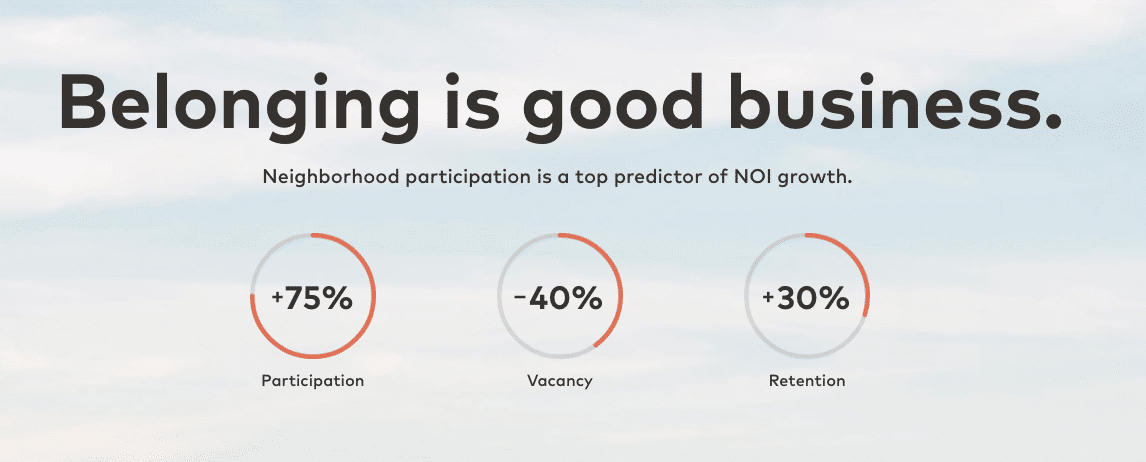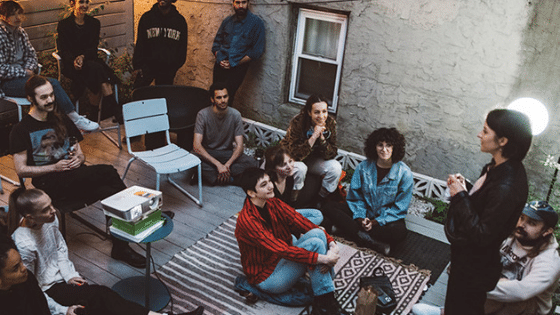Apparently residential real estate developers have been overlooking a key driver in the metrics that matter to them. If they want to retain residents and improve net operating income, they need to focus on building a community. And since this is 2021, there’s most definitely an app for that.
An Israeli-American company called Venn has just raised a $60 million Series B round to build out what it calls “neighborhood as a service.” Or NaaS, naturally. NaaS combines technology and service to build community within a neighborhood. Or even within an apartment building.
L.A.-based VC Group 11 led the latest round. Notably, Group 11 is a fintech-focused investment firm. Also joining the round are Pitango, Hamilton Lane, and Bridges Israel. Venn was founded in 2017 and raised a $40 million A Round in 2019, bringing its cumulative funding to $100 million.

Venn is based on the insight that these days it can be easier to meet people 1,000 miles away than in the apartment next door. And this lack of any sense of community among those we live near (no doubt worsened by the pandemic) is bad for business. Venn’s business case boils down to this. When real estate companies license the platform to encourage community in their residential developments, they are helping their bottom lines.

How it Works
Venn takes this challenge of promoting belonging and breaks it down into a set of solutions designed to bring neighborliness back. This includes a social networking app so neighbors can connect and communicate. But the real value seems to be in curated events, which they call “Venn Gatherings” designed to foster community. The platform also has tools built in to encourage patronage of local businesses and to encourage volunteer activity.

It’s a sure sign of the times that it now takes a platform to create what used to occur organically. The formation of a neighborhood-based community. But this is where we are. So, therefore, Venn may be onto something.
And remember, the real reason for Venn’s existence is to drive better results for its true customer — the landlord. It tracks all the metrics that signal engagement through a self-service dashboard. Landlords can track these metrics and find out how well their community-building efforts are working. Not to mention the impact they are having on the bottom line. Venn nudges the landlord to take actions when metrics lag,
Venn claims that “Venn Neighbors” (these are not ordinary neighbors) who participated in two or more of the company’s local programming and events were 90 percent more likely to stick around and establish roots in their neighborhoods. This is good news for landlords who value a stable clientele. In 2020, Venn says saw a 37 percent reduction in people leaving their neighborhoods and a 20 percent increase in people moving in.
What’s Next?
Venn says it will expand to five more cities in the US in 2021. Venn says it will invest the fresh capital largely in people. Specifically, Venn will hire in research and development, build out its business development efforts aimed at property developers, and expand capabilities with local businesses. It will also invest in new services to create new opportunities for neighborhood participation.
Venn seems to have carved out a unique place in the local ecosystem. There are other platforms for neighbors to communicate with each other. Nextdoor is the one that comes quickest to mind. But does Nextdoor really foster a sense of community? That’s debatable. And it certainly hasn’t established a way to measure a return on community engagement.
That’s what is truly clever about Venn. It has succeeded, apparently at least, in showing developers that building community isn’t just a nice thing to do. It’s also good for business. Because let’s face it, developers don’t exactly have a reputation for altruism.




